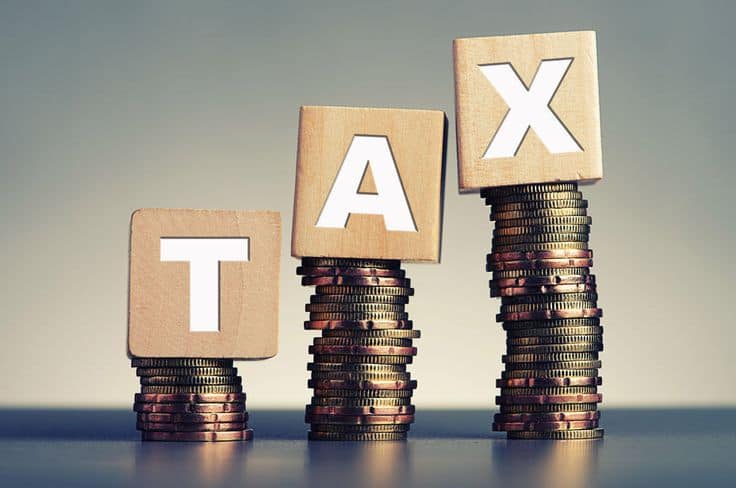Tax Planning for Exit from Canada: Why Proactive Accounting Matters
Introduction
Emigrating from one’s home country can be an exciting but complex endeavour, filled with anticipation and a host of logistical and emotional challenges. Among the many factors to consider when leaving Canada, tax implications often loom large. Proper tax planning can make the difference between a seamless transition and unexpected financial burdens. This blog post will delve into the intricacies of tax planning for your exit from Canada, the importance of seeking professional guidance, and how Dexado, with its expertise and proactive accounting tax services, can help you navigate this journey effectively.
Deemed Dispositions: What You Need to Know
One of the fundamental concepts in Canadian tax law when leaving the country is the idea of “deemed dispositions.” When you cease to be a resident of Canada, the government considers you to have disposed of certain types of property at their fair market value (FMV) at the time of your departure and immediately reacquired them for the same amount. This is known as a “deemed disposition.”
Most properties fall under this rule, but there are important exceptions, including Canadian real property, Canadian business property, and select investment vehicles like pension plans, annuities, registered retirement savings plans, and tax-free savings accounts. Additionally, if you were a resident of Canada for 60 months or less during the 10-year period before your emigration, certain properties may not be subject to deemed dispositions.
Exceptions to Deemed Dispositions
1. Canadian Real Property and Business Property: Canadian real property and Canadian business property are not subject to the deemed disposition rule. This means you won’t be required to report a capital gain or loss on these types of properties when leaving Canada.
2. Certain Investment Vehicles: Some investment vehicles, such as pension plans, annuities, registered retirement savings plans, and tax-free savings accounts, are also exempt from the deemed disposition rule.
3. Short-term Residents: If you were a resident of Canada for 60 months or less during the 10-year period before you emigrated, property you owned when you last became a resident or inherited after becoming a resident may not be subject to the deemed disposition rule.

Reporting the Deemed Disposition
Once you understand the concept of deemed dispositions and the exceptions, the next step is reporting the capital gains or losses resulting from these dispositions. To do this, you will need to complete Form T1243, which is specifically designed for this purpose. The capital gain or loss reported on this form should also be included on Schedule 3, Capital Gains (or Losses), of your tax return for the year in which you ceased to be a resident of Canada.
If the total FMV of all the property you owned when you left Canada exceeds $25,000, you must complete Form T1161, List of Properties by an Emigrant of Canada, and attach it to your tax return. However, personal-use property valued at less than $10,000 (such as clothing, household effects, and collectibles) can be excluded from this list.
Penalties for Non-Compliance
Filing your tax return by the due date is crucial. Failure to file Form T1161 by the due date can result in penalties. The penalty is $25 for each day you are late, with a minimum of $100 and a maximum of $2,500. Even if you are not required to file a return, you must send Form T1161 on or before your filing due date.
Deferring Tax Payment
One beneficial option available to individuals who have experienced a deemed disposition of property is the ability to defer the payment of tax on the income related to this disposition. This deferral allows you to pay the tax later, without interest, when you eventually sell or dispose of the property. However, please note that this election does not apply to the deemed disposition of an employee benefit plan.
To make this election, you need to complete Form T1244 and do so on or before April 30 of the year after you emigrate from Canada. If the amount of federal tax owing on income from the deemed disposition of property exceeds a certain threshold, you may be required to provide adequate security to cover the amount.

Returning to Canada: Unwinding a Deemed Disposition
If you decide to return to Canada after ceasing to be a resident, you may have the option to “unwind” a previous deemed disposition. This election allows you to adjust the gain reported on your tax return for the year you emigrated. However, this option is not available for all types of property, and certain conditions apply.
The Role of Professional Tax Advisors
Given the complexity of tax laws and regulations, consulting with a professional tax advisor when planning your exit from Canada is not just a prudent choice but often a necessity. Here’s why it’s crucial:
1. In-Depth Knowledge: Professional tax advisors have an in-depth understanding of Canadian tax laws, regulations, and exemptions. They can provide you with accurate information tailored to your unique circumstances, ensuring you don’t overlook essential details or exemptions that may apply to your situation.
2. Tax Optimization: Tax advisors can help you optimize your tax position. They can identify strategies and opportunities to minimize your tax liability legally, potentially saving you a significant amount of money. This can include leveraging exemptions, deferring tax payments, or unwinding deemed dispositions when returning to Canada.
3. Compliance and Reporting: Tax laws can be complex and subject to change. Tax advisors can ensure that you meet all your reporting obligations accurately and on time. This helps you avoid penalties and ensures full compliance with Canadian tax laws.
4. Tailored Planning: Every individual’s tax situation is unique. Tax advisors provide personalized advice based on your financial profile, goals, and circumstances. They can create a customized tax plan that takes into account your specific needs and objectives.
5. Risk Mitigation: Professional tax advisors can help you navigate potential risks and pitfalls associated with emigration. They can provide proactive guidance on how to structure your financial affairs to minimize risks and maximize benefits.

How Dexado Can Help: Expertise and Proactive Accounting Tax Services
Dexado is a seasoned tax advisory firm with a track record of helping individuals and businesses navigate complex tax situations, including emigration from Canada. Here’s how Dexado’s expertise and proactive accounting tax services can be instrumental in your tax planning process:
1. In-Depth Knowledge: Dexado’s tax experts have a comprehensive understanding of Canadian tax laws and regulations, including the nuances of deemed dispositions and the exceptions that apply. They stay updated on the latest developments to ensure you receive accurate and current advice.
2. Tailored Solutions: Dexado takes a personalized approach to tax planning. They work closely with you to assess your unique financial situation and goals, crafting a tax strategy that aligns with your objectives.
3. Comprehensive Services: Dexado offers a wide range of tax services, from initial planning and compliance to ongoing support. Whether you need assistance with reporting deemed dispositions, optimizing your tax position, or navigating the unwinding of dispositions upon returning to Canada, Dexado has you covered.
4. Proactive Tax Planning: Dexado doesn’t just react to your tax needs; they proactively anticipate and address potential issues. This proactive approach helps you stay ahead of tax changes and ensures you’re well-prepared for any tax-related challenges that may arise during your emigration and beyond.
5. Risk Management: Dexado is well-versed in risk mitigation strategies. They can help you structure your financial affairs to minimize potential risks associated with your exit from Canada, protecting your financial interests.

Conclusion: Secure Your Financial Future with Dexado
Planning your exit from Canada involves more than just packing your bags; it requires careful consideration of the tax implications. Deemed dispositions, exceptions, and potential tax liabilities can be complex to navigate. That’s why it’s essential to seek professional guidance.
By partnering with a tax advisor like Dexado, you can secure your financial future and embark on your emigration journey with confidence. Dexado’s expertise, proactive accounting tax services, and commitment to personalized solutions make them a valuable ally in ensuring your tax planning is comprehensive, compliant, and optimized to meet your unique needs. Don’t leave your financial well-being to chance—plan your exit from Canada with Dexado and make informed decisions that will benefit you for years to come.







